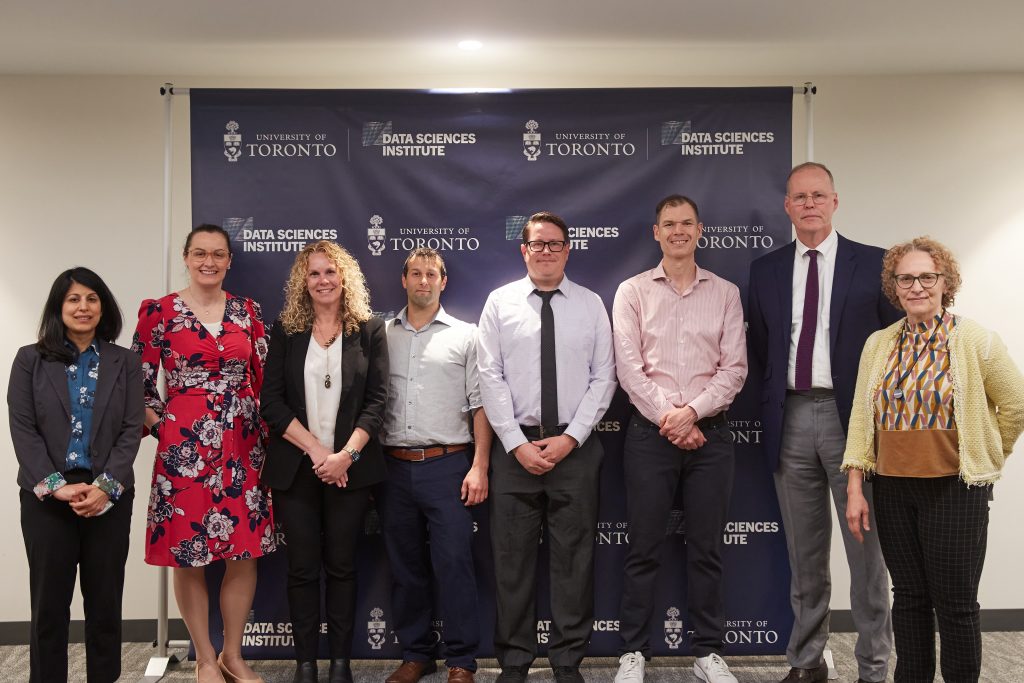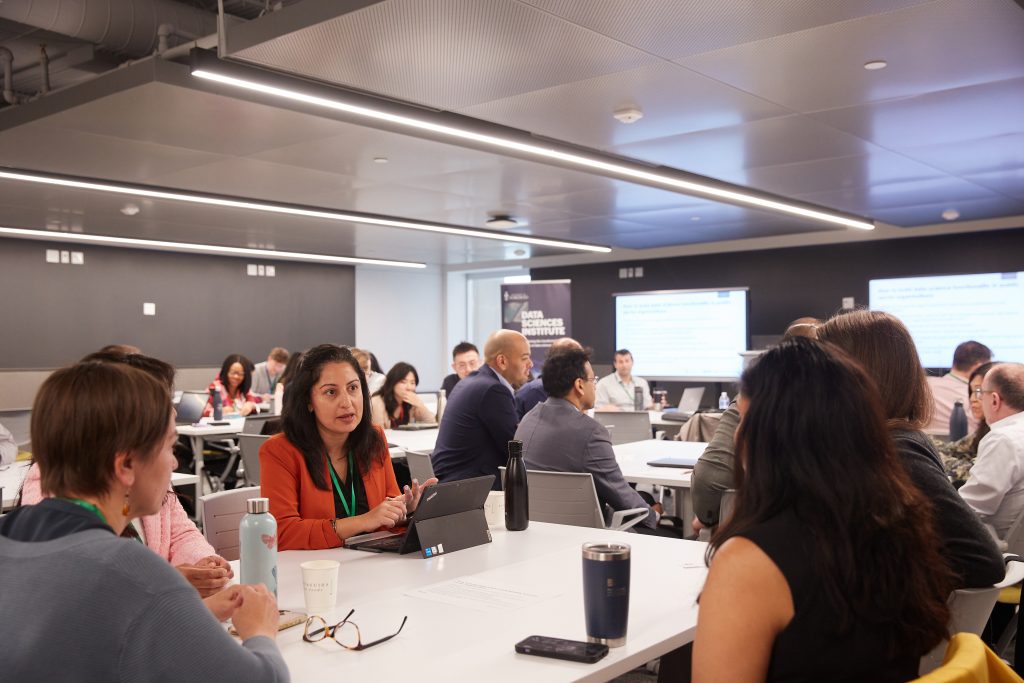By: Andrea Smitko
The Data Sciences Institute’s (DSI) Policy Lab, a collaboration with the Dalla Lana School of Public Health (DLSPH), recently hosted the workshop Data Science Tools and Adoption for Health and Beyond, which brought together researchers, healthcare professionals and government representatives to discuss how the data sciences can be used to inform public healthcare policy.
The Policy Lab aims to support work on data sciences and public policy across sectors and ensure that its capacity-building approach meets the needs of complex policy environments. The Policy Lab works with ministries, agencies and other policy-oriented groups to build capacity and demand across the public sector for data science to foster a community of data scientists and data science users and increase the use of data sciences in the development of policy to create healthier and more just societies.

This workshop was an opportunity for the DSI and DLSPH to share insights and engage in conversation based on initial collaborative work in public health and health systems. The partnership also undertook specific projects to define the context better and understand barriers to overcome to enable data science capacity in public sector organizations; in particular, it focused on the findings from the Policy Lab’s Researchers-in-Residence.
The event began with a presentation by Policy Lab co-chairs Laura Rosella, associate director, education & training, DSI, faculty member and associate professor, DLSPH, and associate professor, Laboratory Medicine & Pathobiology, Faculty of Medicine, and Michael Hillmer, assistant deputy minister, digital & analytics strategy, Ontario Ministry of Health/Ministry of Long-Term Care, and associate professor, IHPME, who spoke about the Policy Lab and the work it’s doing to understand barriers preventing data science capacity in public sector organizations.
“We’re seeing all of this work with data sciences and AI in the private sector and in key areas in research. We want to have an impact on society, so we’re trying to increase the use of data science in the policy space and we’re going to focus on health policy as a start, but a lot of the learnings are going to extend beyond health,” says Rosella. “The idea was to bring in researchers-in-residence — people that work in public sector health organizations — to spend time at the university and help us define what it means to meaningfully collaborate in advanced data science and use it for policy decision making.”

During the workshop, three researchers-in-residence presented key findings from several recent case studies; some of which included analyzing the use of AI to maintain and update a large public health registry, determining machine learning’s accuracy in identifying non-melanoma skin cancers, and measuring the effectiveness of AI to categorize exposures when investigating cases of food born illnesses.
“These were examples of successful applications of AI or machine learning in the public health sector space. We saw that in all three there were commonalities,” says researcher-in-residence Steven Habbous, lead methodologist, strategic analytics, Ontario Health. “AI enabled the completion of work that was inefficient for us to do. It does improve the speed and ability to implement effective interventions, and ultimately makes better use of the data we have. It wasn’t about acquiring new data, the data was already there, but leveraging it for our needs — that’s where it shines.”
There were several collaborative activities throughout the day, where attendees engaged in rigorous discussions on topics such as how to build data science functionality in public sector organizations, and education and capacity building. The event also featured a presentation that detailed important items for organizations to consider as part of a data science toolkit, including the importance of securing dedicated funding and resources, recruitment and upskilling staff, and change management. A common theme throughout was the need for a strong buy-in from leadership and an organizational structure that supports the integration and use of AI and machine learning.
“How do you create a culture of evidence and data? It starts with leadership, that’s incredibly important, and then you focus on people, process and tools,” said Hillmer. “That’s what this fellowship is all about. You can now go off and be the proselytizers of data science in organizations. It doesn’t have to be a grand initiative, it just needs to be you being creative. Whatever form it takes, just get started with that first step and build that culture.”
